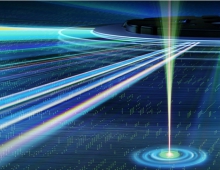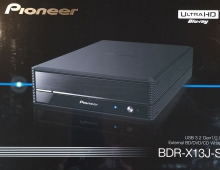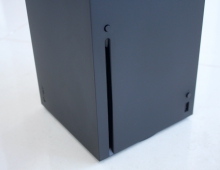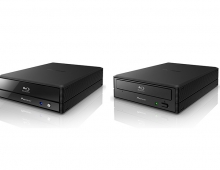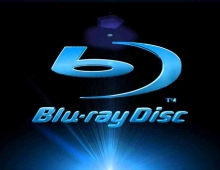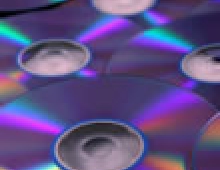
Blu-ray Disc Goes Home
PC World tested the next-generation DVD technology called Blu-ray, and got "mixed" results...
"...I had the opportunity to glimpse the future of disc-based recording and test drive these two Blu-ray Disc models at my Tokyo home--and I liked what I saw. In my informal, hands-on tests, both units produced recorded images that I found comparable to live HDTV. When comparing the units' outputs, I also couldn't discern a difference in the image quality at the default recording mode for HDTV.
Compatibility is king when it comes to establishing a new standard for content recording and playback, and consumer electronics manufacturers know this. That's why I was surprised I had difficulty mixing and matching the discs produced by these first-generation Blu-ray Disc recorders.
Using the Sony machine, I recorded some HDTV onto a pair of Sony 23GB discs. When I inserted them into the Panasonic unit for playback, one worked fine but the second disc could not be read and the machine insisted it needed to be reformatted--something that would have erased the programs I had already stored on it. I put it back in the Sony and it worked fine. Eventually I reformatted the disc and it gave no problems in both machines.
Conversely, the Sony machine successfully played back both 25GB BD-RE discs from the Panasonic--although it did so only after thinking long and hard about it. Of the 10 times I tried it, the fastest loading time I recorded was 47 seconds and the worst was a wait of three minutes before it recognized the disc. It recognized its own Sony discs in about 25 seconds. The 50GB dual-layer discs I made on the Panasonic wouldn't load at all on the Sony.
The upshot is, yes, the first generation of Blu-ray Disc recorders are shipping--but there's a reason the technology hasn't made it overseas just yet. The sluggish response times and compatibility issues are something that I'd expect from prototype machines but not commercialized products and certainly not such expensive ones.
More critically, these early models lack support for future prerecorded Blu-ray Disc content. That means you won't be able to watch Gandalf take on Saruman in The Lord of the Rings--assuming it actually comes out in high-definition BD-ROM..."
Compatibility is king when it comes to establishing a new standard for content recording and playback, and consumer electronics manufacturers know this. That's why I was surprised I had difficulty mixing and matching the discs produced by these first-generation Blu-ray Disc recorders.
Using the Sony machine, I recorded some HDTV onto a pair of Sony 23GB discs. When I inserted them into the Panasonic unit for playback, one worked fine but the second disc could not be read and the machine insisted it needed to be reformatted--something that would have erased the programs I had already stored on it. I put it back in the Sony and it worked fine. Eventually I reformatted the disc and it gave no problems in both machines.
Conversely, the Sony machine successfully played back both 25GB BD-RE discs from the Panasonic--although it did so only after thinking long and hard about it. Of the 10 times I tried it, the fastest loading time I recorded was 47 seconds and the worst was a wait of three minutes before it recognized the disc. It recognized its own Sony discs in about 25 seconds. The 50GB dual-layer discs I made on the Panasonic wouldn't load at all on the Sony.
The upshot is, yes, the first generation of Blu-ray Disc recorders are shipping--but there's a reason the technology hasn't made it overseas just yet. The sluggish response times and compatibility issues are something that I'd expect from prototype machines but not commercialized products and certainly not such expensive ones.
More critically, these early models lack support for future prerecorded Blu-ray Disc content. That means you won't be able to watch Gandalf take on Saruman in The Lord of the Rings--assuming it actually comes out in high-definition BD-ROM..."

